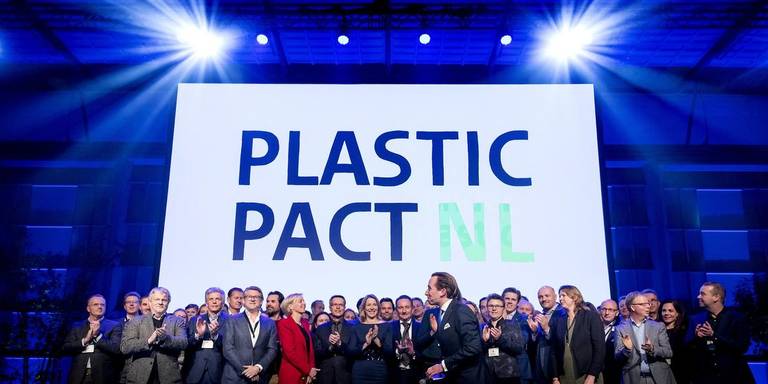However, we are aware that the large-scale application of these materials comes with disadvantages attached. The use of primary fossil raw materials puts pressure on the environment. Valuable raw materials are lost with it because recycling percentages are not high enough yet and the spread of plastic litter and micro-plastics is a source of growing concern to everyone.
Plastic Pact NL is one of the Dutch government’s priorities within the framework of the Raw Materials Agreement and the Circular Economy Implementation Programme. This Plastic Pact focuses on closing the cycle of single-use plastic products and packaging. In addition to the Dutch government, participating parties include supermarkets, manufacturers of plastics and packaging, environmental organisations, recycling companies and many other organisations.
We have decided to join this initiative and to actively contribute to the realisation of the objectives formulated in the Plastic Pact. Similar initiatives have been launched or are currently being developed in other countries. The main objective of these programmes is to close the cycle of single-use plastic products and packaging.



BRC Packaging
BRCGS is a standard for food safety. The standard describes the hygiene and food safety requirements for food processing companies that supply directly to the retail sector. You can also think of packaging materials for foodstuffs.



FSSC 22000
The FSSC 22000 Standard has been created through Stichting Certificatie Voedselveiligheid (SCV). As a food-oriented version of the ISO 22000 Standard, this certification programme has been set up as a global guideline in food safety and quality within various industries. This standard is aimed at the entire production chain and as such, it is ideally suited for international harmonisation, partly thanks to the recognition by the GFSI. In addition to its connection with ISO 22000, the FSSC 22000 has many comparisons with the HACCP criteria, making it an attractive variant with the best of both worlds from these programmes. Thanks to the internationally accepted nature of the FSSC and the chain-wide approach within this certification programme, we recognise a strong food safety management system in this standard.

 News 29-02-2024
News 29-02-2024
